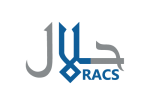
Category: Halal
Please feel free to browse frequently asked questions in this category
The Arabic word Halal means "permissible" and refers to what is lawful in traditional Islamic Law. Most frequently, but not exclusively, it is used in connection with food & beverages, cosmetics, or pharmaceuticals.
Halal certification is the proof that a certain product, process, or facility is compliant with Halal standards defined by official regulatory entities. A Halal standard contains the requirements that must be fulfilled in order to reach the status of Halal. This makes the product suitable for consumption or usage by Muslims who request it.
A Halal certificate confirms that a product is conforming to Halal standards. The certified products may carry a Halal logo signaling its conformity to individuals. Muslims around the world care about buying certified Halal products and prefer them over non-certified or non-Halal products. For companies who are interested in extending their business to markets with a significant Muslim population, a Halal certification is key to increase sales by reaching new customers, and to export to countries with major Muslim communities.
Some Muslim countries’ import regulations require a Halal certificate for certain products, especially in regards to food & beverages, cosmetics, and pharmaceuticals. For example, all GCC countries require a Halal certificate for meat and processed meat which proves that traditional Islamic rules for animal slaughtering were obeyed.
Theoretically, a Halal certificate can be issued for any kind of product and even services. The highest value of a certification is for products with unknown origin, status, or way of production. Most commonly it is applied to food & beverages, cosmetics, or pharmaceuticals. Products conforming to Halal standards are highly sought after by Muslims around the world.
Some countries request a Halal certificate as a mandatory requirement in order to import certain products.
In order to assess complexity, length of the audit, and overall cost, we need additional information. To this end we kindly ask you to fill out this short online form. Within 1-2 business days, we can then send you a binding quote for the entire certification process.
In the following flow chart we describe the entire Halal certification process click here
The shows the Arabic word “HALAL” and states the name “RACS” as the certifier. The Halal logo of RACS Germany is a registered trademark with the German Patent and Trade Mark Office. The logo can be used by companies for their RACS Halal-certified products.
Please note that some markets have restrictions on which Halal marks can be used for certified products. In the UAE for example, the only accepted Halal mark is the Halal National Mark (HNM) (See here for details about the HNM). But although the RACS Halal mark cannot be used there, the RACS Halal certificate of course remains valid.
While export to countries with a Muslim majority is a very good argument for Halal certification, or even a necessity, it is by no means the only one.
Halal certification can add real value to a product in other markets as well, especially if those have significant or growing Muslim communities, such as in Europe. Halal products are highly sought after by Muslim communities around the world.
In order to qualify for the Halal certificate, the production facilities need to be audited. It’s not only the final product, or the ingredients that need to be Halal, but the entire process needs to be audited. This also includes matters such as food safety and hygiene. Cost and duration of the audit depend on many factors, such as number and size of the production facilities, complexity of the production process, non-Halal risk factors, and number of products to be certified.
In almost all cases two auditors will be present for the audit, one specialized in the technical part, and the second specialized in Islamic affairs.
In order to receive a quotation, please fill out this form and we will send you a personal quotation for the certification process quickly.
Besides the regular audit of the slaughtering or meat cutting facility, the production process itself has to be supervised by a RACS-staff member, if the meat is meant for export to certain countries. All the GCC countries for example require such supervision of the slaughtering and cutting process. A separate document is then issued for every shipment that has been supervised.
For Halal meat sold in markets not regulated in such a way, supervision is not required, but could add value to your product if you choose to opt for it.